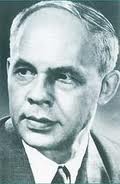This page has moved here.
The new URL is:
https://defendinghistory.com/the-last-jewish-fort
Apologies for any inconvenience.
This page has moved here.
The new URL is:
https://defendinghistory.com/the-last-jewish-fort
Apologies for any inconvenience.
The United Nation’s Human Rights Committee in its 11 July 2012 report, issued in Geneva, included the following text concerning the Lithuanian government’s arguments regarding the legalization of public swastikas and the ongoing authorization of neo-Nazi parades:
I was surprised to learn that Lithuanian president Dalia Grybauskaitė appointed you ambassador to Belarus. She said Belarus is an important partner for Lithuania with many ties between our countries, and that cooperation should be on an equal footing, constructive and mutually beneficial. I invite you to think about whether you really are able to do this job, or whether you won’t make international relations worse because of certain matters of the past.
Let me remind you of one such thing. On 31 October 2002, you and then-president Valdas Adamkus signed presidential decree no. 1965 posthumously promoting Juozas Krikštaponis (Krištaponis) to the rank of colonel. The decree mistakenly gave his first name as Jonas, a mistake corrected in presidential decree 1K-849 issued by President Adamkus on 5 January 2007.
In spite of the repeated visible damage to Lithuania’s standing emanating from previous attempts, the country’s Ministry of Foreign Affairs has now announced that red-brown politics in the service of Double Genocide would be one of the goals of its upcoming stint in the rotating presidency of the European Union.
There was diplomatic blood on the floor following the foreign ministry’s failed attempt to insinuate Double Genocide into the Stockholm Program in 2010 (reports here, here, and here).
Vytautas Landsbergis is one of the giants of the late twentieth century. Along with Poland’s Lech Wałęsa and then-Czechoslovakia’s Václav Havel, Landsbergis led his people from foreign domination to freedom and democracy. Nothing these gentlemen might later on have said or done to their own legacies, particularly in the subsequent century, can detract from their singular achievements in contributing to the downfall of the Soviet Union and the freedom of the subjugated nations on its western periphery.
ZHAGER, northern Lithuania. Over a hundred people gathered here today on the historic town square to unveil a trilingual plaque memorializing the erstwhile Jewish population of thousands in the town, today Žagarė. The event was incorporated into the annual Cherry Festival and suitably entitled “You can’t fudge the history.”
SEE ALSO THE REPORTS BY ROD FREEDMAN AND SARA MANOBLA
THE QUESTION: IS IT THE ONLY TOWN-CENTER IN ALL THE LAND WITH CLEAR AND TRUE WORDS ON THE TRUE FATE OF THE JEWISH POPULATION?
The text — in English, Lithuanian and Yiddish — summarizes the unvarnished history, with prominent reference to local Lithuanian collaboration (though historians will quibble with the use of “some” in place of “many” among other points). It is placed right in the center of town, rather than at a mass grave site deep in the forest; that might well be a first in modern Lithuanian history.

Algis Davidavičius
Lately I can barely think about Lithuania, my own society, without seeing the image of the “chronic patient” with all of his “diseases.” A society which is healthy, where the absolute majority of people making it up feel warm encouragement to fulfill themselves constructively and actively, to find a meaningful place in that society for their own lives…
Where is this society? How would it look? Or is this only last year’s Marxist dream? What is “health?”
Most likely all societies are sick in their own way, but I live in my society, or with it (to speak more precisely). If I may be frank, I am not really concerned with the health or opportunities of Israeli society as I am part of Lithuania’s. What the hell is going on with us?

Juozas Ambrazevičius (Brazaitis), 1903 — 1974
Memorial funeral events, dedicated to the moving of Juozas Ambrazevičius-Brazaitis’s ashes, were held in Kaunas for a week and a half from May 17th to 27th. He was the acting prime minister of the summer 1941 Provisional Government of Lithuania (PG); his ashes were moved to the former provisional Lithuanian capital, Kaunas.
His ashes were delivered by airplane from the distant state of Connecticut to the current Lithuanian capital, Vilnius, and then escorted with honors to Kaunas, where the ashes, originally buried in 1974, were re-buried, this time with full state honors.
Apparently, those who initiated the reburial were pursuing three goals of importance to them:
Konstantinas Liuberskis–Žvainys is a figure with a curious biography.
Many thanks to the Economist and its online Eastern Approaches section for highlighting this important issue that so many others have just swept under the rug. But frankly speaking, it does our Lithuanian friends no good to slant each report in the direction of sophisticated apologetics for the Lithuanian (and other regional) governments’ tragic veering to the far right on issues of historic integrity, human rights, freedom of speech, antisemitism, racism, gay rights, and perhaps above all, state-sponsored adulation of local Nazi war criminals and collaborators, and actual local mass murderers of the region’s Jewish population. It was, alas, a level of participation that resulted in the Baltics having the highest percentage of murder of its Jewish population in Holocaust-era Europe.
NOTE: This is an authorized republication of today’s letter, which first appeared in the online Algemeiner Journal. [Update: It then appeared in the AJ’s print edition on 25 May, pp. 2, 4, 5.]
Dear Tim,
Greetings, and sorry we missed each other in Vilnius this time. I write in the context of our ongoing and respectful conversation, which started in the Guardian (thanks to Matt Seaton, and prominently including Efraim Zuroff) back in 2010 (I, II, III, IV); continuing through our meeting at Yale, the Aftermath Conference in Melbourne, Australia, in 2011 (thanks to Mark Baker, and with participation of Jan Gross and Patrick Desbois), and more recently, via my review of your book Bloodlands (along with Alexander Prusin’s The Lands Between), in East European Jewish Affairs.

Rabinowitz-Dorf: Did the PR firm sell out Lithuanian Jewry to help the current right-wing government “change” the history of the Holocaust with American Jewish cover, while enabling “Fake Litvaks” to misrepresent themselves as representing the Jewish community in Lithuania?